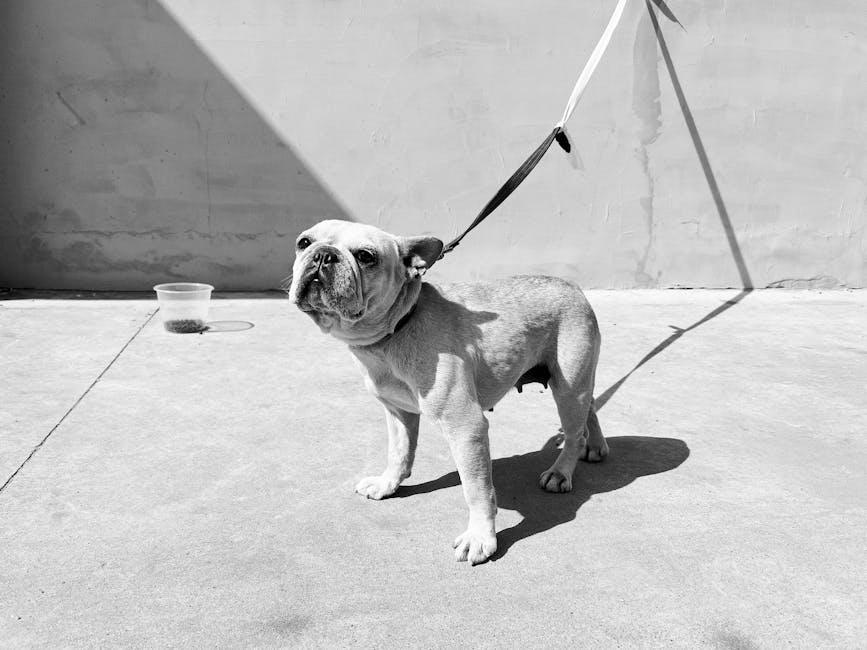Welcoming a puppy into your home is an exciting and joyful experience, filled with playful moments and endless cuddles. As a new pet parent, one of the most important responsibilities you’ll have is ensuring your furry friend grows up healthy and strong. Just like humans, puppies need a balanced diet and regular exercise to maintain a healthy weight, which is crucial for their overall well-being and longevity. In this article, we will guide you through essential tips and strategies to help your puppy achieve and maintain an ideal weight. Whether you’re a first-time puppy owner or a seasoned dog lover, these warm and practical insights will empower you to make informed decisions that support your puppy’s health and happiness. Let’s embark on this journey together to give your puppy the best start in life.
Understanding Your Puppys Nutritional Needs
Ensuring your puppy receives the right nutrients is essential for their growth and development. A balanced diet tailored to their specific needs will set the foundation for a healthy life. Here are some key components to consider:
- Protein: Crucial for muscle development and overall growth. Look for high-quality sources like chicken, beef, or fish.
- Fats: Essential for energy and healthy skin. Ensure they come from good sources like fish oil or flaxseed.
- Carbohydrates: Provide energy and should be easily digestible. Opt for whole grains or sweet potatoes.
- Vitamins and Minerals: Important for immune function and bone development. Make sure the food includes a variety of fruits and vegetables.
Consulting with your veterinarian can help in selecting the right food, especially if your puppy has specific dietary needs or allergies. Remember, portion control is just as important to prevent overfeeding, which can lead to weight issues. Keep an eye on their weight and adjust their diet as they grow to maintain a healthy balance.
Creating a Balanced Feeding Schedule for Your Puppy
To ensure your puppy maintains a healthy weight, it’s essential to establish a feeding schedule that balances their nutritional needs and energy levels. Puppies are growing rapidly, and their diet must support their development. Start by feeding your puppy small, frequent meals throughout the day. This typically means three to four meals for puppies under six months old. As they grow, you can gradually transition to two meals a day. The key is consistency, so try to feed your puppy at the same times each day to help regulate their digestion and metabolism.
When planning your puppy’s meals, consider incorporating a mix of high-quality puppy food that offers a balanced blend of proteins, fats, and carbohydrates. Look for options that list a high-quality protein source as the first ingredient. You might also want to consult your veterinarian to tailor the portion sizes and meal frequency to your puppy’s specific breed, size, and activity level. Don’t forget to include plenty of fresh water throughout the day, and monitor your puppy’s weight and body condition regularly to adjust their feeding plan as needed.

Incorporating Play and Exercise for a Healthy Lifestyle
Ensuring your puppy stays active is key to maintaining their health and happiness. Engaging in play and exercise not only helps to keep their weight in check but also strengthens the bond between you and your furry friend. Consider incorporating a variety of activities to keep things exciting. Here are some ideas to get you started:
- Interactive Toys: Use puzzle toys that challenge your puppy’s mind while also promoting physical activity. These toys can keep them engaged and help burn off excess energy.
- Fetch and Tug-of-War: Classic games like fetch or tug-of-war can provide a great workout. They’re perfect for building muscle and improving coordination.
- Obstacle Courses: Set up a mini obstacle course in your backyard or living room. This can include tunnels, jumps, and weave poles. It’s a fun way to develop agility and boost confidence.
Remember, the key is consistency. Daily exercise routines tailored to your puppy’s breed and energy levels will help them stay fit and trim. Always monitor their responses to ensure they aren’t overexerted, and adjust the intensity as needed. With a little creativity and commitment, you’ll be fostering a healthy lifestyle that will benefit your puppy for years to come.
















